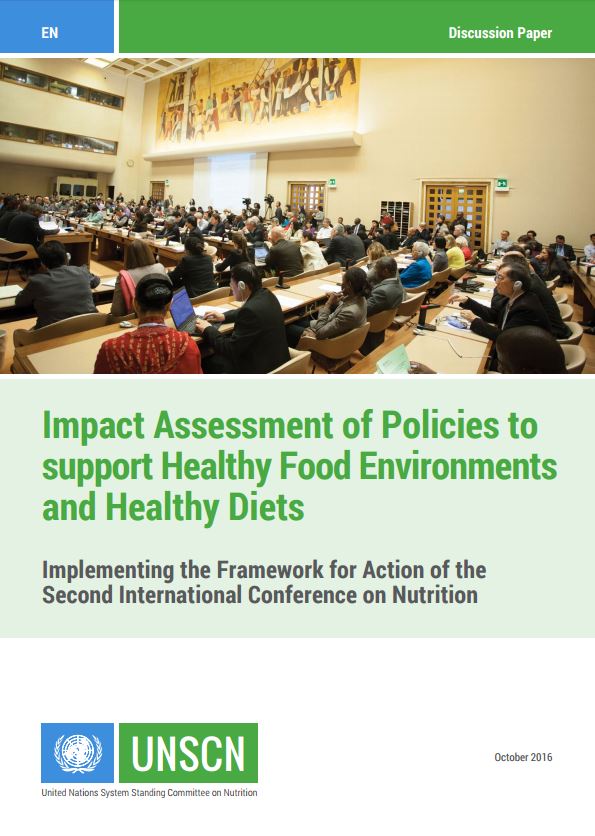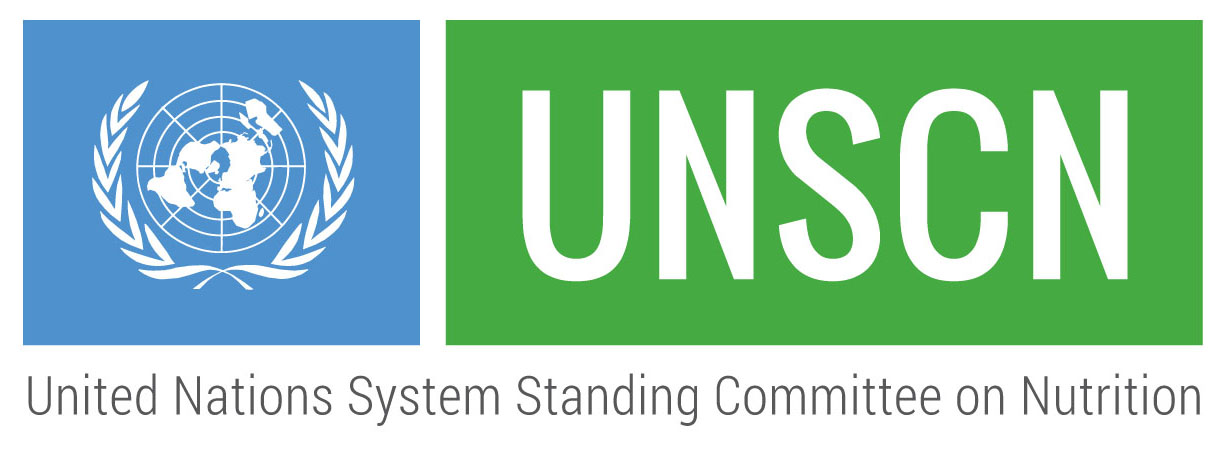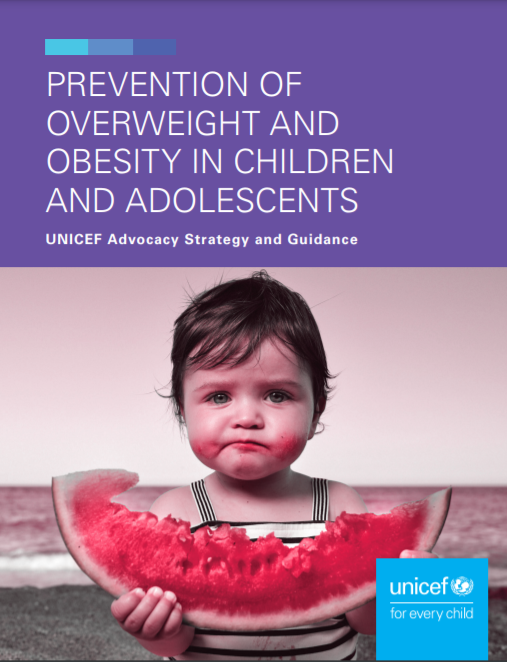Methods, Tools and Indicators
UNSCN Discussion Paper - Impact Assessment of Policies to support Healthy Food Environments and Healthy Diets

Outcomes and processes for accountability are sorely needed for assessing the impact of food systems policies on nutrition. The Framework for Action includes an adopted set of recommendations on actions ensuring that food systems become more sustainable and promote diverse and healthy diets. Among those is Recommendation 8: that "encourages countries to review national policies and investments and integrate nutrition objectives into food and agriculture policy, programme design and implementation, to enhance nutrition sensitive agriculture, ensure food security and enable healthy diets". In addition, other recommendations refer to actions in related policy areas including trade, investment and social protection.
Purpose of the paper:
Governments, moving forward with implementing the ICN2 outcomes, are seeking guidance on how to assess whether their actions from policy formulation to programmatic implementation promote healthy diets and contribute to improved nutrition. Therefore, a decision-making support instrument aimed to identifying, predicting, evaluating and mitigating relevant nutrition-related effects of policies and programmes prior to major decisions being taken is needed. This instrument will help to ensure that nutrition considerations are explicitly addressed and incorporated into development and policy decision-making processes. The instrument will provide decision-makers with an analysis of all relevant aspects of nutrition in a country' specific situation and context, so that decisions are informed by all the information available.
The full discussion paper and executive summary can be downloaded here:
Discussion paper: English, Spanish, French, Arabic, Russian, Chinese
Executive Summary: English, Spanish, French, Arabic, Russian, Chinese





